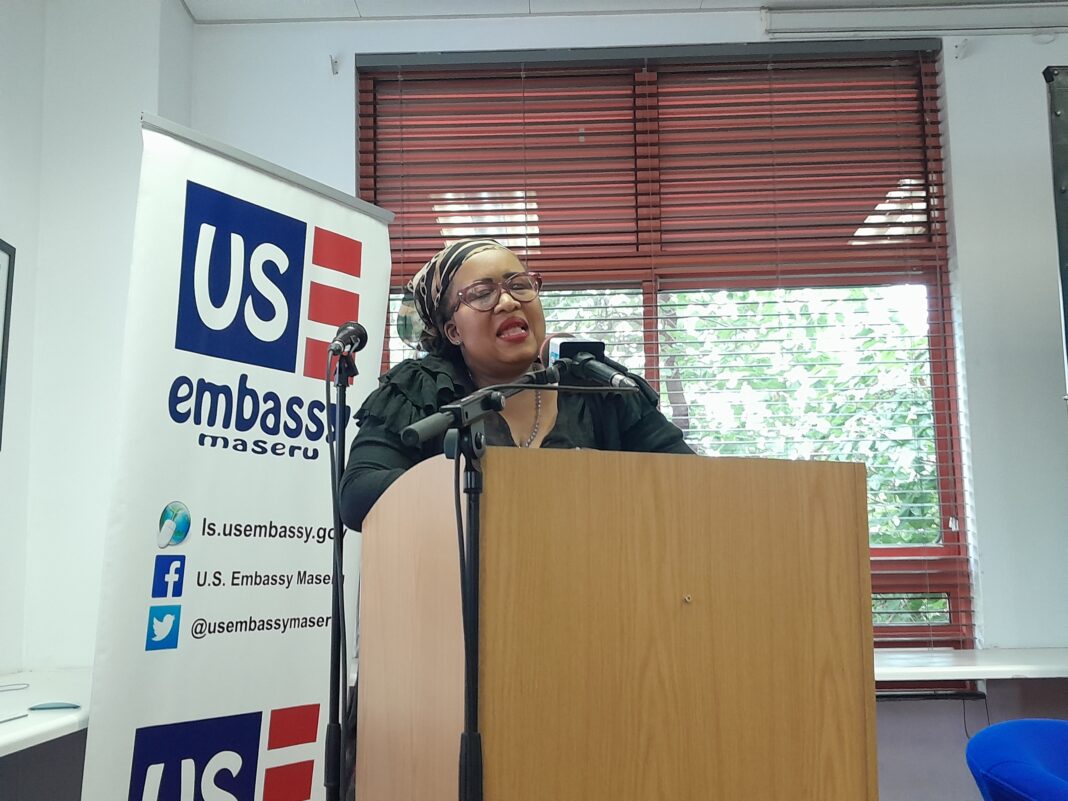Ntsoaki Motaung
In a jaw-dropping twist to the battle against escalating drug abuse among youths, a startling revelation has emerged.
Turns out, the very guardians of the law, the esteemed police force, might be playing both sides of the game—they’re not only failing to enforce the law but actively participating in drug dealings themselves.
The bombshell was dropped by Mokhosi Oa ‘Mangoana (MoM), an NGO formed by concerned parents grappling with the repercussions of drug abuse on their children.
During a recent forum attended by police representatives, MoM disclosed the grim reality: some officers are apparently doubling as drug dealers and users.
Supported by the office of the United States Embassy in Maseru, the event aimed to amplify public awareness of the emerging ‘pandemic’ of drug abuse and sex trafficking among teenagers.
Pontšo Tumisi, MoM’s Public Relations Manager, minced no words, revealing that some officers are cozying up with drug peddlers, dealing substances on the side, and even partaking in their merchandise.
“We have been shocked to find out that some of the police officers work in cahoots with drug dealers, and are involved in drug trafficking as a side hustle. Some of them are also drug users,” Tumisi revealed.
Shockingly, testimonies from youth reveal a spine-chilling connection—law enforcement officers are allegedly the go-to suppliers for these illicit substances.
But that is not the end of the sordid tale. Tumisi, a mom to a female drug-troubled youth, unveiled a topsy-turvy world where seized drugs are magically rerouted to different dealers by these officers in uniform.
Instead of upholding justice, they are allegedly pocketing bribes and turning a blind eye to drug kingpins.
“Some police officers also take bribes from drug dealers instead of taking them to court when they have ‘arrested’ them,” she explained on the sidelines of the event.
In a hair-raising statement, Tumisi also unveiled the perilous plight parents face, often forced to confront these lords themselves due to a lackluster response from authorities.
“As much as our children assault and sometimes kill us we do not look at them as criminals. They are still our children and we will do everything in our power to protect them,” she said.
She further indicated that drug abuse has far-reaching effects, especially on the families of drug addicts, and therefore must be declared a pandemic.
“Drug abuse does not only affect people who use them, it also affects people around users, mostly their parents. Some of the parents die from being harassed by their children just for a fix. We therefore call for it to be declared a pandemic because many people are affected,” she explained.
Contacted for comment, police spokesperson Senior Superintendent Kabelo Halahala, said if some members of the police were involved in crimes, they should also be regarded as criminals too.
Halahala, however, implored the public to blow the whistle in instances where police officers were suspected of being involved in criminal activities so that appropriate measures could be meted out against them.
Speaking during the forum, Senior Assistant Commissioner of Police (SACP) Tšeliso Moerane said many drug lords have since faced legal consequences for their crimes.
“There no statistics with me but a lot of people who distribute drugs have been arrested and dealt with legally but a lot of work has to be done,” Moerane said.
He said the Lesotho Mounted Police Service (LMPS) was raising awareness about drug abuse. He said part of their anti-drug abuse activities included visiting schools and communities to talk about youth issues such as the dangers of abusing drugs.
Moerane said this was because drug dealers target schools by setting up small stalls around them as decoys for their drug-trafficking business. Drug dealers use the same approach in highly populated places, he said.
Jullion Cooper from the U.S. Embassy in Maseru indicated that drug addiction was not only a matter for the criminal justice sector but one that required intervention from other authorities.
“It is a complex issue requiring a whole-of-government approach. To address this issue effectively, we must recognise that there is often a myriad of underlying issues that lead to drug use. These issues can range from economic hardship and unemployment to mental health challenges, peer pressure, and social inequalities,” Cooper said.
He said drug addiction could lead to disrupted families, increased crime, and a strain on the healthcare system.
“It limits the potential of our youth and stifles their dreams and aspirations. We should be wary of labeling those affected by drug addiction as ‘bad people’. Rather, people struggling with drug addiction are individuals battling a brain disease, a relentless adversary that knows no mercy,” he said.
He said in conjunction with treatment, a lot of things need to be prioritised including the economic well-being of young citizens as the lack of economic opportunities is a significant contributing factor to the drug problem.
“Creating job opportunities, offering skills training, and supporting entrepreneurship initiatives can empower youth to lead productive lives,” he said.




